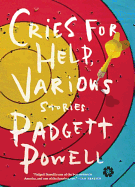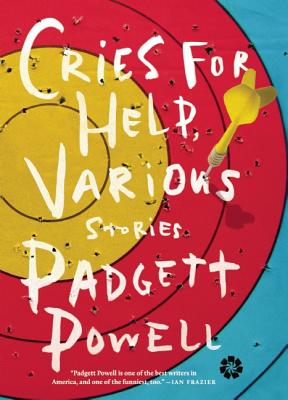 Fiction writer Padgett Powell is tough to categorize. His first novel, Edisto (1984), an American Book Award nominee, was a reasonably straightforward coming-of-age story often categorized as a "southern Catcher in the Rye." After that he shot off in several directions with short novels and stories of Dixie weirdness (Mrs. Hollingsworth's Men, You & Me), culminating in The Interrogative Mood--a novel (of sorts) consisting entirely of questions. For three decades he has taught at the University of Florida in Gainesville, and his work has been tossed in with that of other Southern writers on the edge, like Donald Barthelme, Harry Crews, Barry Hannah and John Kennedy Toole. Powell's story collection Cries for Help, Various contains a taste of his previous interests, characters, humor and existential ponderings. What he doesn't provide much of is plot--but that's okay, because the rest is tremendously entertaining.
Fiction writer Padgett Powell is tough to categorize. His first novel, Edisto (1984), an American Book Award nominee, was a reasonably straightforward coming-of-age story often categorized as a "southern Catcher in the Rye." After that he shot off in several directions with short novels and stories of Dixie weirdness (Mrs. Hollingsworth's Men, You & Me), culminating in The Interrogative Mood--a novel (of sorts) consisting entirely of questions. For three decades he has taught at the University of Florida in Gainesville, and his work has been tossed in with that of other Southern writers on the edge, like Donald Barthelme, Harry Crews, Barry Hannah and John Kennedy Toole. Powell's story collection Cries for Help, Various contains a taste of his previous interests, characters, humor and existential ponderings. What he doesn't provide much of is plot--but that's okay, because the rest is tremendously entertaining.
In the opening story, "Horses," the narrator has somehow corralled 50 stolen horses in a 7-Eleven parking lot ("me and the herd and the hotdog wrappers") while cowboy poets drink coffee inside and plan to "reverse history" by giving the horses to Indians. When the good ole boy Sheriff appears with a jug of blackstrap molasses, events fly farther off the rails. One story imagines Janis Joplin in grade school with a discordantly eloquent Charles Dickens, "his cute boy knees and his difficult man mouth." As brief follow-ups to The Interrogative Mood, the stories "The Indicative Mood" and "The Imperative Mood" continue in the format of plotless sequences of disjunctive lines such as these, from the latter: "Throw rocks at children. Leap tall buildings, of course. Remain calm. Try to win." "Wagons, Ho!" dips into the story of Custer's arrogance right up to the end: "The music was about to stop playing for him and his band, but until it did his needle was in the groove." Powell also riffs on South American anacondas and parrots, salamanders cooking pancakes, Boris Yeltsin and a martial arts-trained Asian piano student.
Holding Nicholson Baker-like minutiae and wackiness together is the world-weary, Beckett-like existential angst of each protagonist. These aging guys (and the characters are mostly men) seem genuinely bewildered by their lives--but not despondent. One notes: "The real problem is that I have no ambition or desire for anything at all--not for the women, nor for work, not for barbecuing, not for life. If I have a problem, it is that I have no problem." Another in "Hoping Weakly" seems to sum up Powell's take on our absurd world: "I hope for something. It is not a strong hope.... I hope weakly for that which I see weakly. I'll be okay no matter what." When entering Powell's world, set aside algorithms and let his words take you away. --Bruce Jacobs, founding partner, Watermark Books & Cafe, Wichita, Kan.
Shelf Talker: Padgett Powell's Cries for Help, Various is a rich stew of language and humor exposing an absurd world of Southern crackpots, satire and existentialism.







SHELFAWARENESS.0213.S4.DIFFICULTTOPICSWEBINAR.gif)





 An arthouse cinema opening in New York City on the Lower East Side next year
An arthouse cinema opening in New York City on the Lower East Side next year SHELFAWARENESS.0213.T3.DIFFICULTTOPICSWEBINAR.gif)

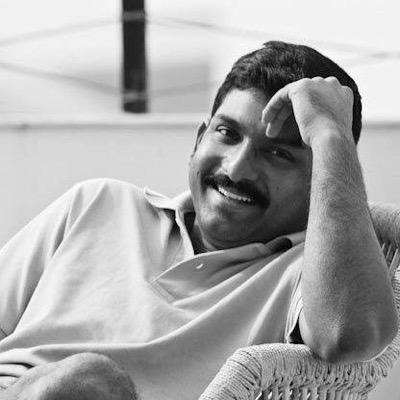
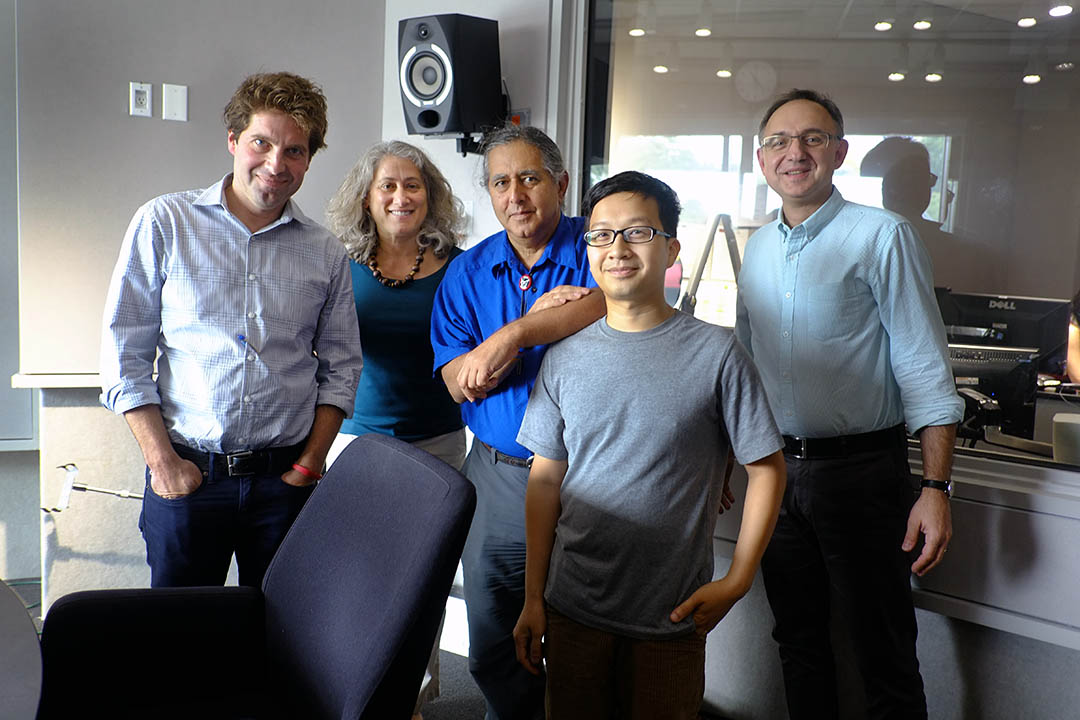 A recent segment on
A recent segment on 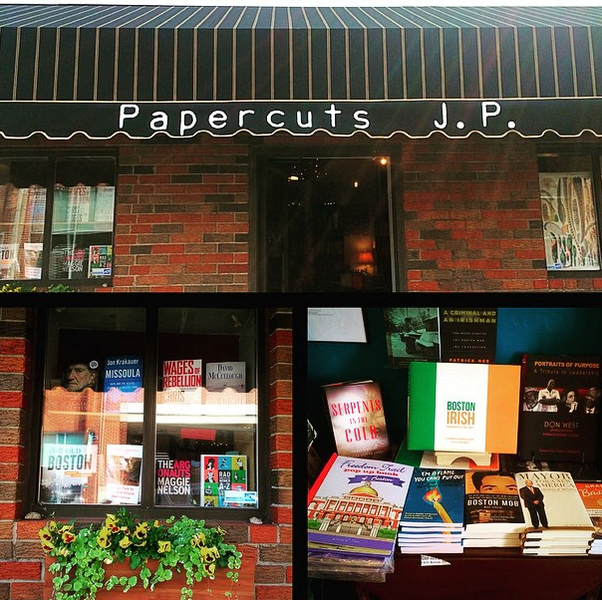 Describe your most memorable customer interaction.
Describe your most memorable customer interaction.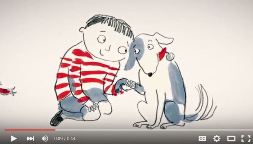 How to Be a Dog
How to Be a Dog Fiction writer Padgett Powell is tough to categorize. His first novel, Edisto (1984), an American Book Award nominee, was a reasonably straightforward coming-of-age story often categorized as a "southern Catcher in the Rye." After that he shot off in several directions with short novels and stories of Dixie weirdness (Mrs. Hollingsworth's Men, You & Me), culminating in The Interrogative Mood--a novel (of sorts) consisting entirely of questions. For three decades he has taught at the University of Florida in Gainesville, and his work has been tossed in with that of other Southern writers on the edge, like Donald Barthelme, Harry Crews, Barry Hannah and John Kennedy Toole. Powell's story collection Cries for Help, Various contains a taste of his previous interests, characters, humor and existential ponderings. What he doesn't provide much of is plot--but that's okay, because the rest is tremendously entertaining.
Fiction writer Padgett Powell is tough to categorize. His first novel, Edisto (1984), an American Book Award nominee, was a reasonably straightforward coming-of-age story often categorized as a "southern Catcher in the Rye." After that he shot off in several directions with short novels and stories of Dixie weirdness (Mrs. Hollingsworth's Men, You & Me), culminating in The Interrogative Mood--a novel (of sorts) consisting entirely of questions. For three decades he has taught at the University of Florida in Gainesville, and his work has been tossed in with that of other Southern writers on the edge, like Donald Barthelme, Harry Crews, Barry Hannah and John Kennedy Toole. Powell's story collection Cries for Help, Various contains a taste of his previous interests, characters, humor and existential ponderings. What he doesn't provide much of is plot--but that's okay, because the rest is tremendously entertaining.